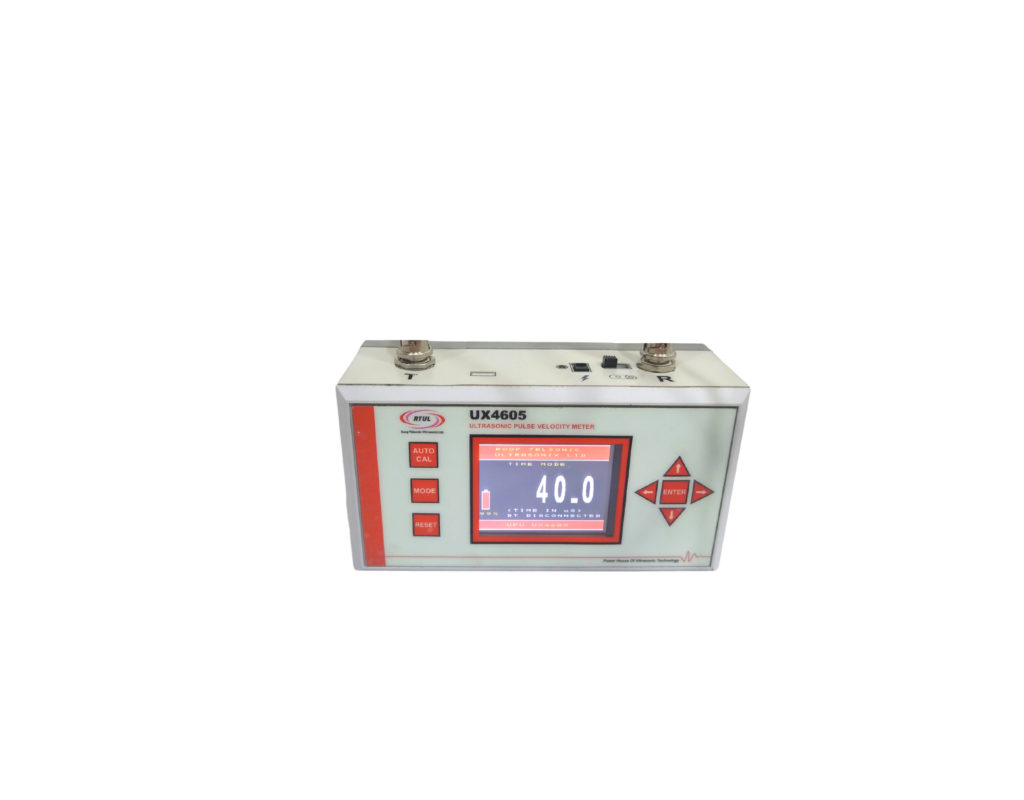
Benefits of ultrasonic pulse velocity testing
Many variables are required to check the functionality of a testing machine depending on its type and utility. A concrete testing machine is chosen for its compatibility, strength, size, and features. These variables make it suitable for the kind of test it will be used for.
RTUL specializes in ultrasonic technology to assist its customers to conduct pulse velocity test of concrete. Keeping in mind the field conditions, our team prepares the most useful machines for this application.
Read more to select the best concrete testing machine for your specific needs.
Understanding concrete and its performance measures
Its strength is the most dominant performance measure that any engineer tests. It works for roads, building design, or any other infrastructure. The machine for measurement needs to be compliant with the industry standards. A total load frame of 20% is the ideal capacity requirement. Keeping the parameters in mind will offer the best selection results with the samples and ultimate strength for measurement.
The machines are used for reinforced, pre/post-tested concrete. They can also be used for wooden frames which require measurement of strength. Hard plastics and composite materials can also be evaluated through similar performance measures.
Ultrasonic Pulse velocity (UPV) testing suited for engineering testing
This particular machine assesses the transit time taken for reflected pulse waves when they are passed across the material. In this case, it is concrete and any changes are closely inspected for detection and anomalies.
The changes occur:
- On arrival time
- Amplitude
- Characteristics of the mechanical waves when it pass the concrete.
They will reveal:
- Internal conditions and the concrete makeup.
- Cracking indications of honeycombing.
- Voids that block the pulse waves.
- Differences in transit time.
- Different waves affect velocity, and signal strength.
- Low energy signals from the thickness of the sample or actual field result.
When the pulse velocity test of concrete is conducted it will also indicate delaminates, shotcrete in other masonry structures. If you need the machine for testing overall concrete testing, this machine is useful for the analysis. It will display the signal and propagation velocities when the waves are compressed.
Benefits of Ultrasonic Pulse Velocity testing

You can get non-destructive and destructive testing options. The evaluations can be used for corrosion surveyors. With the help of a ground penetrating radar test results are more insightful. Our machines are complaint with the British Standard BS -4408 (Part V – 1974), BS-1181 and ASTM C597. The transducers have frequency level of 50 to 100KHZ.
We can help you to measure small samples and actual field areas with high-frequency testers with accurate timing accuracy. You can check out the catalog online which features the designs and features. We also have thickness gauge meters, flaw detectors and pulse receivers for additional requirements.
At RTUL we have an experienced workforce to understand the field needs of concrete testing. We have applied these methods to various customers with success. We are enabled to solve various problems related to construction activities involving stone and concrete. We can help you select the best from our inventory and also provide services involved with it.
.png)
.png)
.png)